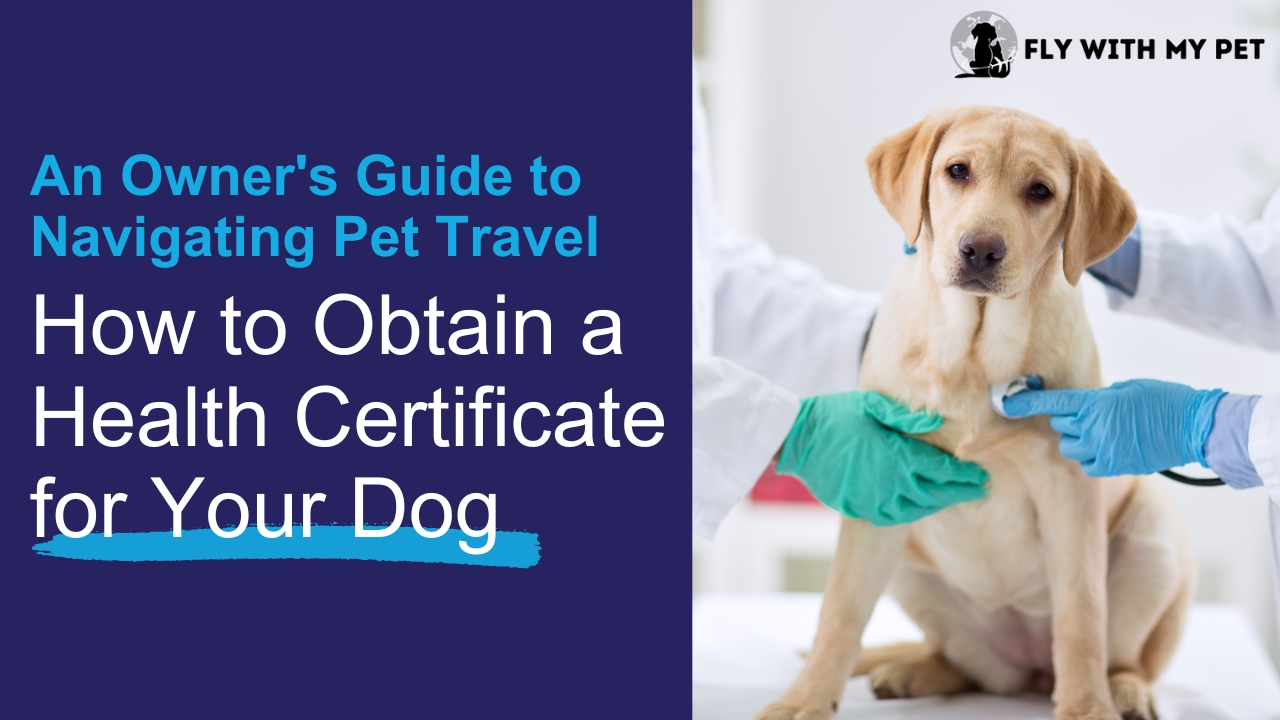
As pet owners, we cherish our furry companions and often want to include them in our travel adventures, necessitating the acquisition of a veterinary health certificate for both domestic and international trips. Whether it’s a cross-country road trip or a flight to a distant destination, traveling with our pets requires careful planning and consideration, particularly when it comes to their health and safety. One essential aspect of preparing for pet travel, especially when crossing borders or flying internationally, is obtaining a health certificate for your dog. In this guide, we’ll explore everything you need to know about health certificates and how to ensure a smooth and stress-free travel experience for you and your canine companion.
Understanding Health Certificates
A health certificate, also known as a certificate of veterinary inspection (CVI), is an official document issued by a licensed veterinarian certifying that your pet is healthy and fit for travel. This document typically includes information about your pet’s vaccination history, current health status, and any recent medical treatments, which is essential for acquiring an international health certificate if traveling abroad. Health certificates are often required by airlines, border control agencies, and other authorities to ensure the safety of animals and prevent the spread of diseases.
The Role of the Veterinarian
Before embarking on your journey, it’s crucial to schedule a visit to your veterinarian to obtain a health certificate for your dog, which may include obtaining an international health certificate for overseas travel. Not just any veterinarian can issue a health certificate—only accredited veterinarians are authorized to perform this task, especially when it involves issuing an international health certificate for travel. An accredited veterinarian is one who is licensed by the state and has undergone additional training and certification to meet the requirements set forth by the United States Department of Agriculture (USDA). During your appointment, your veterinarian will conduct a thorough examination of your dog, verify their vaccination records, and ensure they meet all necessary health requirements for travel. If you don’t already have a veterinarian you work with, our Find-a-Vet tool helps you find an accredited veterinarian near you.
Vaccinations and Requirements
One of the most important aspects of obtaining a health certificate is ensuring that your dog is up-to-date on all required vaccinations, paving the way for a USDA APHIS-endorsed international health certificate when traveling abroad. While specific vaccination requirements may vary depending on your destination, the rabies vaccine is typically mandatory for pet travel. Furthermore, an international health certificate endorsed by USDA APHIS is often required for international travel. Additionally, some countries or states may have additional vaccination requirements or quarantine periods, so it’s essential to research and comply with all relevant regulations well in advance of your trip. Your veterinarian will help you understand and meet these requirements to ensure smooth passage for your pet, however, it’s helpful to be prepared in advance. Our Pet Travel Assistant allows you to tell us about your trip and will outline for you all the essential travel information relevant to your specific trip.
Airline Regulations
If you’re planning to fly with your dog, it’s crucial to familiarize yourself with the pet travel policies of your chosen airline. Most airlines have specific requirements and guidelines for traveling with pets, including the presentation of a valid health certificate, which may require endorsement by USDA APHIS for international flights. Some airlines may also have restrictions on the size and breed of dogs allowed in the cabin or cargo hold, as well as additional fees for pet transportation. By carefully reviewing the airline’s pet travel policies and adhering to their requirements, you can avoid any last-minute surprises and ensure a comfortable journey for your pet.
Certifying the Health Certificate
Once your veterinarian has completed the health examination and verified that your dog meets all necessary health requirements, they will issue and sign the health certificate. This document serves as official proof that your pet is healthy and fit for travel and should be kept with you throughout your journey. Digital health certificates make it easier for both you and your veterinarian to ensure sure you have a certified health certificate on time. Ask your veterinarian if they use GlobalVetLink to produce digital certificates. Depending on your destination, you may also need to present the health certificate to airline staff, customs officials, or border control agents upon arrival, so be sure to keep it easily accessible.
Preparing for pet travel with a health certificate for your dog may seem daunting, but with careful planning and the guidance of your veterinarian, you can ensure a smooth and stress-free experience for you and your furry friend. By understanding the requirements, obtaining the necessary vaccinations, and complying with airline regulations, you can embark on your travel adventures with confidence, knowing that your pet’s health and safety are well-protected. Bon voyage!
